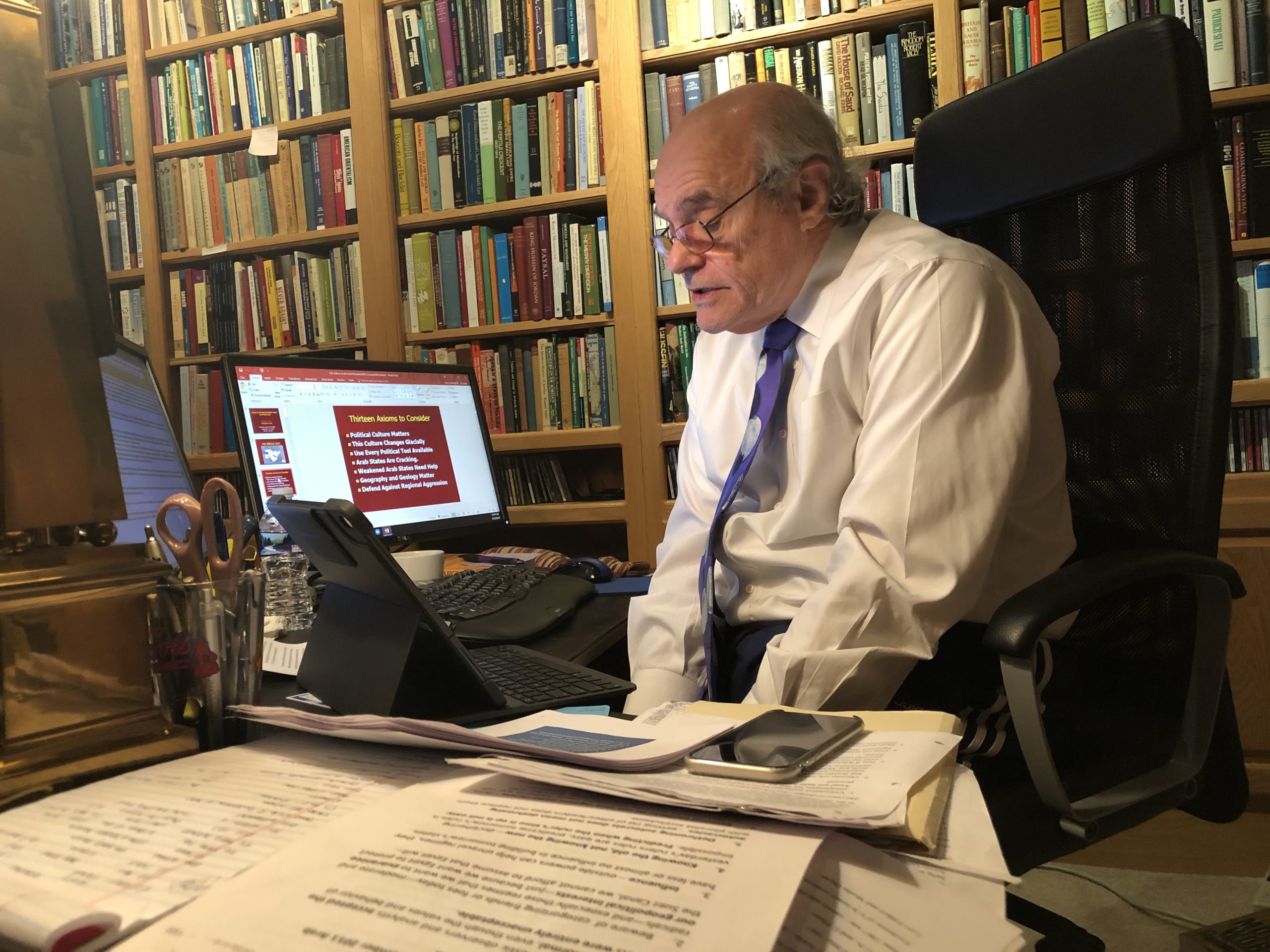
June 10, 2020
By Dr. Ken Stein, Founding CIE President
The pandemic has had a blistering impact on our lives. When and where will it end? Unexpected and unnecessary deaths. We have learned that some parts of government are inept — some not prepared or not willing to cope, some on-the-spot accurate and competent. Unemployment at Depression levels. Businesses closed, opened, then gone. Trillions provided to the needy and, in some cases, the not-so-needy. First responders “running into the fire” to help.
Education at all levels has been thrown askew. Schools closed. Colleges emptied their dorms. Long-distance learning exploded. Libraries went virtual. Anti-Israel campus-focused activities this spring were canceled, likely only temporary reprieves. Faculty who possess a well-known animus toward Israel have used their classrooms for outlandish preaching rather than teaching; suddenly, these polemical critics of Israel are bound by circumspection because their Zoom classes are recorded and archived. Where no peer or college administrator suggested changes in what or how a topic was taught, the Zoom system may have them uncomfortably muted. On-campus actions against Israel or Zionism, such as Israel Apartheid Week, are on forced timeouts. Anti-Israel online invective did not go away, but the in-person onslaught dissipated. I wonder, when on-campus teaching begins again, whether university administrators will tighten their control over egregious anti-Israel activity, which is cloaked anti-Semitism.
Spring semester for me at Emory College began with 84 students in a classroom; it ended with those students stretched from Singapore to Boca Raton. What did I learn from teaching the Arab-Israeli conflict on Zoom this spring? PowerPoints and videos spliced into the teaching segment worked well, especially when students had archived materials to be viewed later. Listing discussion questions for upcoming class meetings (flipped classroom) had great results. Analyzing source documents on a shared Zoom screen while using the chat function for feedback kept students focused; it taught them analytical tools and the benefits of diplomatic ambiguity. Using the discussion feature on Zoom provided added value. Having access to digital items and online source materials for the website, www.israeled.org, made teaching the topic of Israel easier because each document had a contextual introduction.
All teachers had to pivot; they had to adapt their content presentations to the technologies available. They were successful if they were creative and knew their material. Flexibility, adaptability and the cry for content soared. Zoom was everywhere: shared screens, chat rooms, muting buttons, gallery views. Organizations postponed conferences and fundraising dinners. Seeking to stay connected to their constituents, think tanks and local and national organizations whipped up webinars and sent out emails at a blistering pace.
How will self-sheltering impact Israel or Jewish education? Some realities and then reasoned speculation. School trips to Israel have been canceled or shortened. Most Jewish camp sessions are postponed. Some Birthright trips have been canceled; future ones are up in the air. National Jewish organizations that operated on campuses and with teens have postponed in-person gatherings. Fundraising in Jewish communities is severely down, causing sharp budgetary revisions for most communal organizations. In some cases, those cuts threaten the very viability of day schools or the retention of teachers in Jewish orbits, wherever they may be. Underemployed Jewish parents may be strapped to make day school tuition payments and maintain membership in organizations.
The pandemic will not advance the quantity or quality of Israel learning if Israel learning was not a priority in Jewish education and in Jewish communities before the outbreak and shutdowns. I participated in a national organization’s Jewish education webinar recently where the discussion focused on the nature of Jewish education during and after the pandemic. The word “Israel” and term “Israel education” were used but twice in that hour-long webinar about inclusion in Jewish education plans.
Webinars have proliferated. There will be a residue and likely demand for substantive distance learning, some from those who never or rarely participated in any Jewish learning. Those who did not want to battle traffic to go across town will expect affiliated organizations to provide quality distance programming. Long-distance scholar-in-residence programs about Israel are being booked. We gladly answer requests to conduct online Israel learning sessions for congregations and day schools and to hold professional advancement trainings for national organizations and their reps wherever they may be working. Join us in Israel learning.
